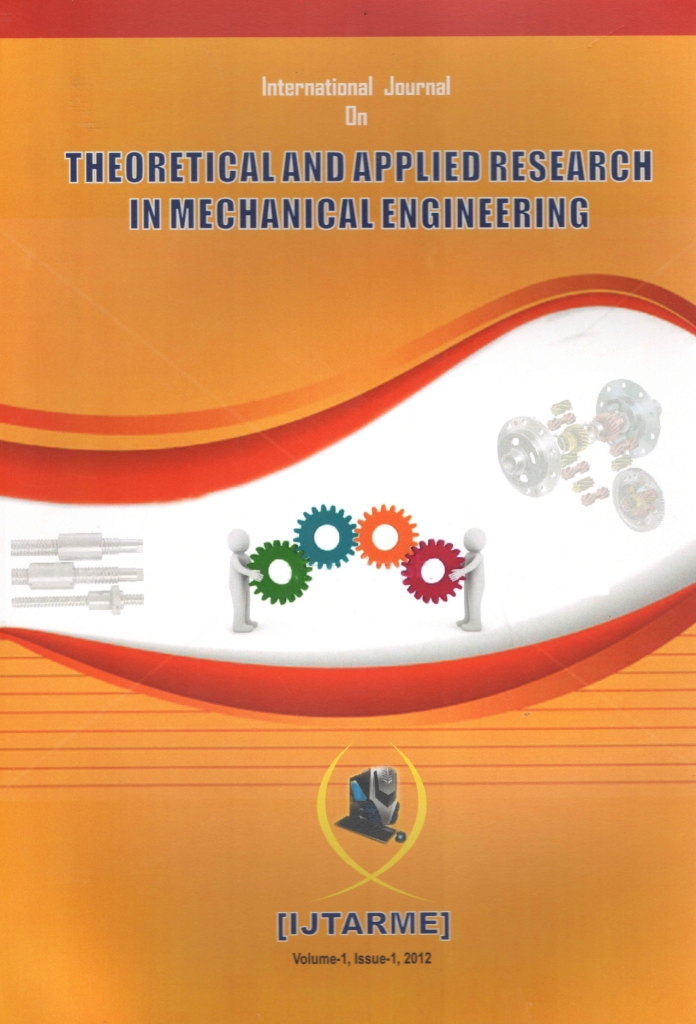About :: IJTARME
Objective of the Journal
The objective of International Journal on Theoretical and Applied Research in Mechanical Engineering (IJTARME) is to help professionals working in the field, educators and policy makers to contribute, to disseminate information and to learn from each other's work. IJTARME also aims at establishing channels of communication between Centres of Excellence for Mechanical Engineering.Contents
IJTARME is a refereed international journal, published quarterly, providing an international forum and an authoritative source of information in the field of Mechanical Engineering.Area to be Covered
The broad spectrum of the journal includes the topic but not limited to:• Design theory and approaches
• Innovative mechanisms
• Mathematical and computational issues
• Kinematics and dynamics
• Performance mapping and optimisation
• Reconfiguration and sustainability
• Hardware and systems
• Calibration
• Intelligent robotic instrumentation and measurement
• Motion planning and control
• Human-robot interfaces
• Perception and machine learning
• Robotic machine tools and manufacturing systems
• Micro- and nano-robotics
• Flexible/compliant/hybrid/bio-inspired robots
• Atomistic modelling
• Nanomechanics, micromechanics
• Eigenstrain theory
• Thin films
• MEMS
• NEMS
• Residual and thermal stresses
• Materials
• Finite-element modelling
• Constitutive modelling and phenomenology
• Elasticity, plasticity, viscoelasticity, viscoplasticity
• Experimental mechanics
• Laminar flow, multi-phase flow
• Turbulence
• Mechanics-based engineering systems design
• General mechanics
• GeomechanicsHealth and Safety
• Heat and Mass Transfer
• HVAC
• Instrumentation and Control
• Internal Combustion Engines
• Machinery and Machine Design
• Manufacturing and Production Processes
• Marine System Design
• Material Engineering
• Material Science and Processing
• Mechanical Design
• Mechanical Power Engineering
• Engineering Education and Training
• Facilities Planning and Management
• Global Manufacturing and Management
• Human Factors
• Information Processing and Engineering
• Intelligent Systems
• Manufacturing Systems
• Operations Research
• Production Planning and Control
• Project Management
• Quality Control and Management
• Reliability and Maintenance Engineering
• Safety, Security and Risk Management
• Service Innovation and Management

